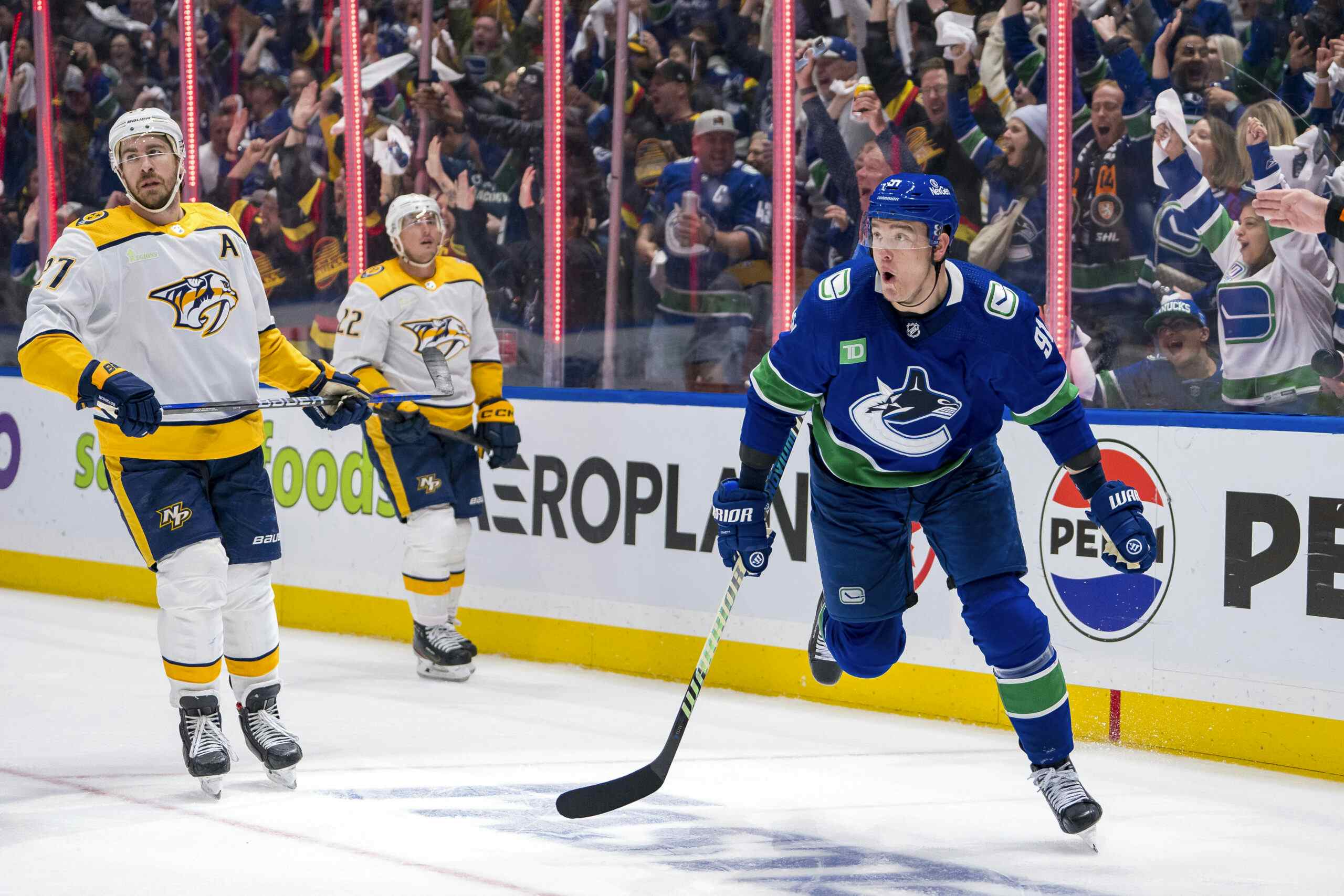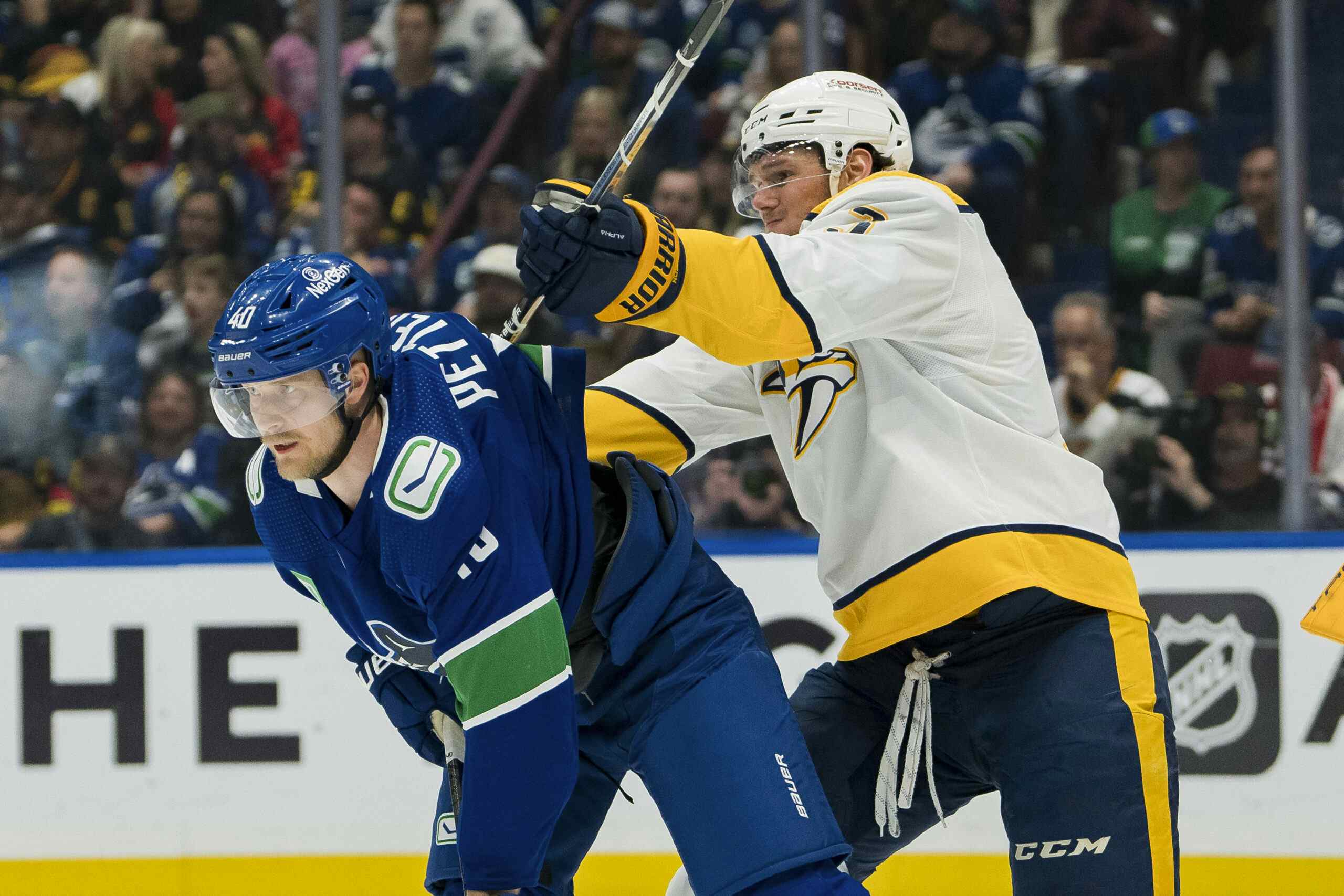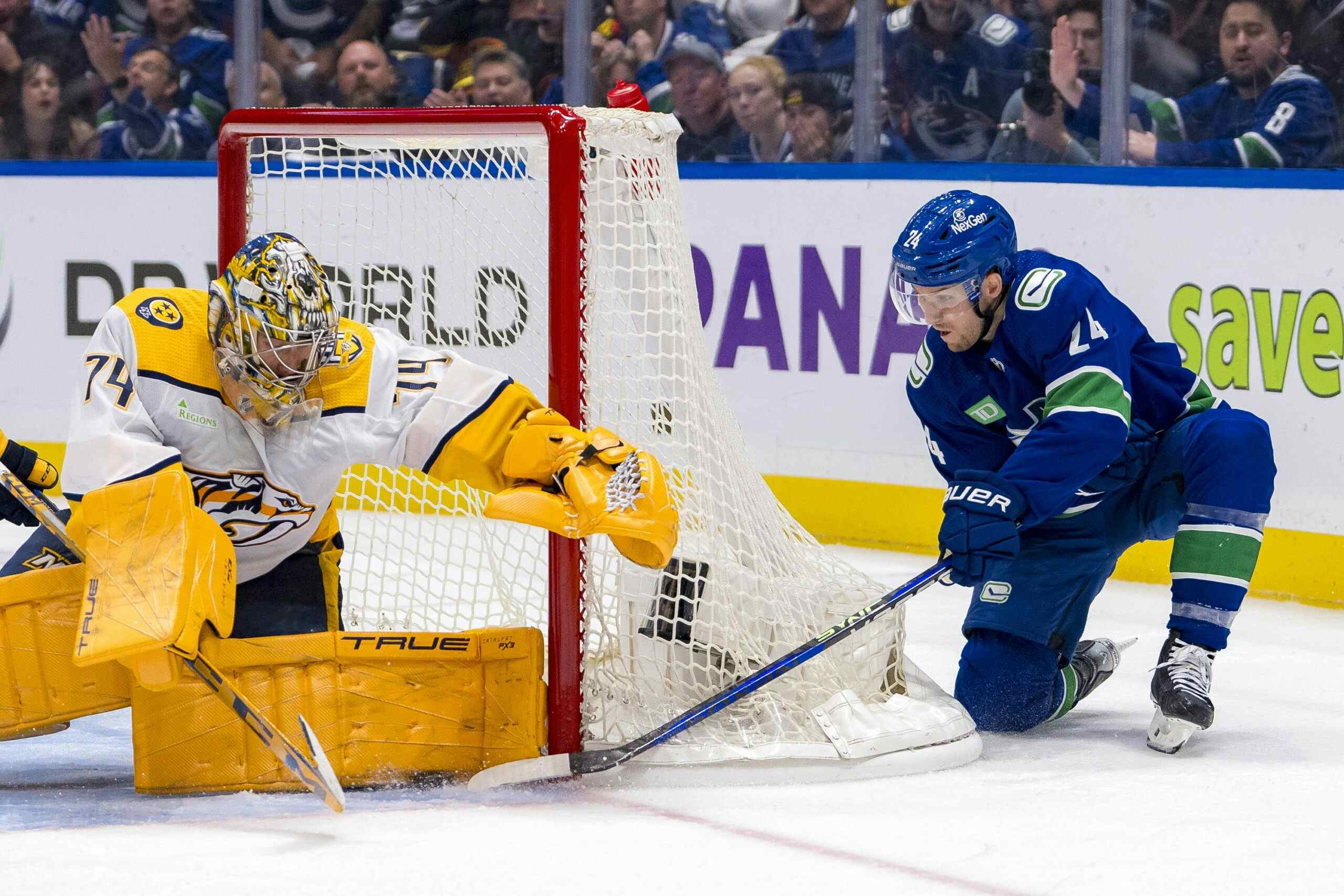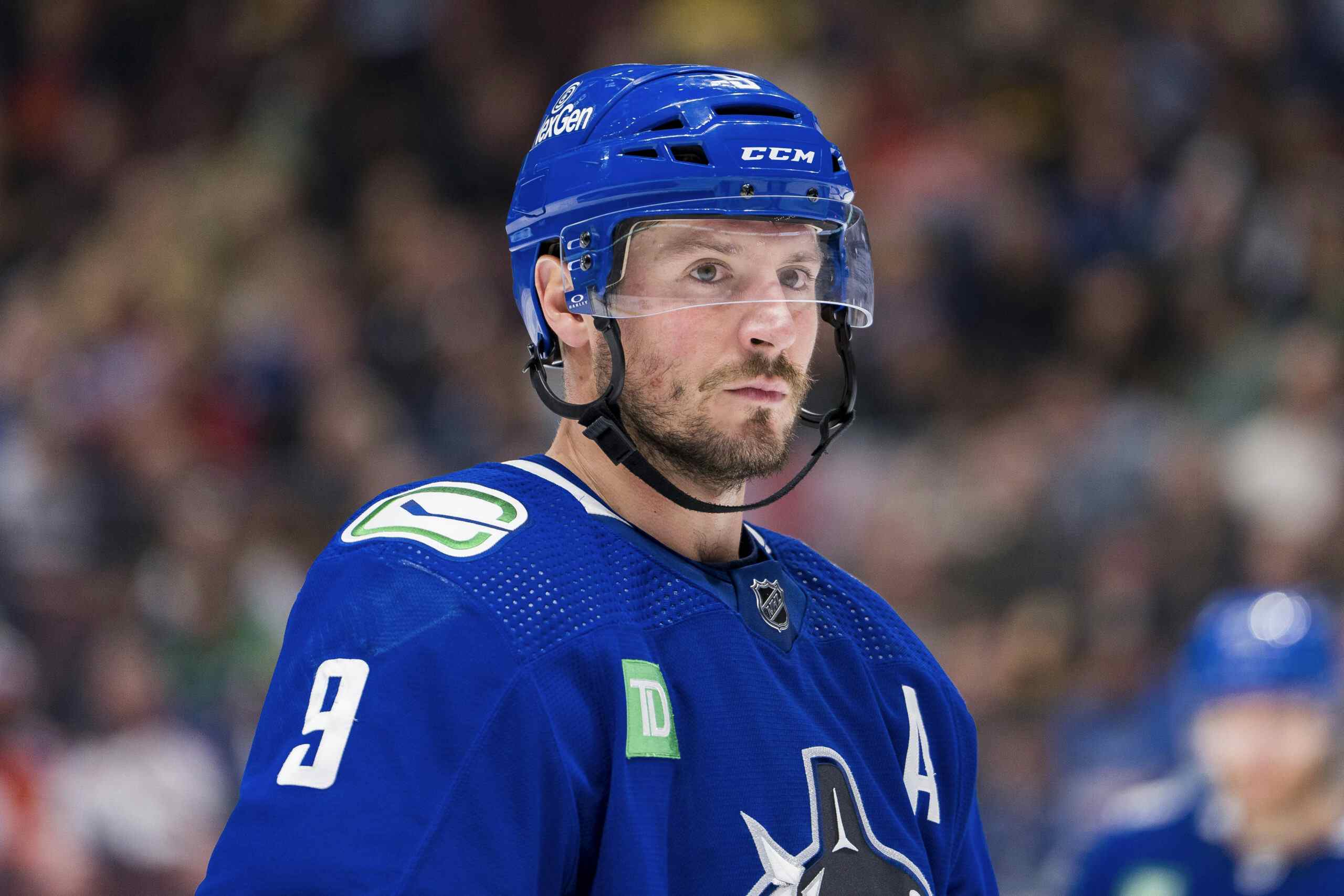Strombabble: Could the NHL’s Proposed Back-Diving Deals Provision Actually Benefit the Canucks in a Luongo Trade?
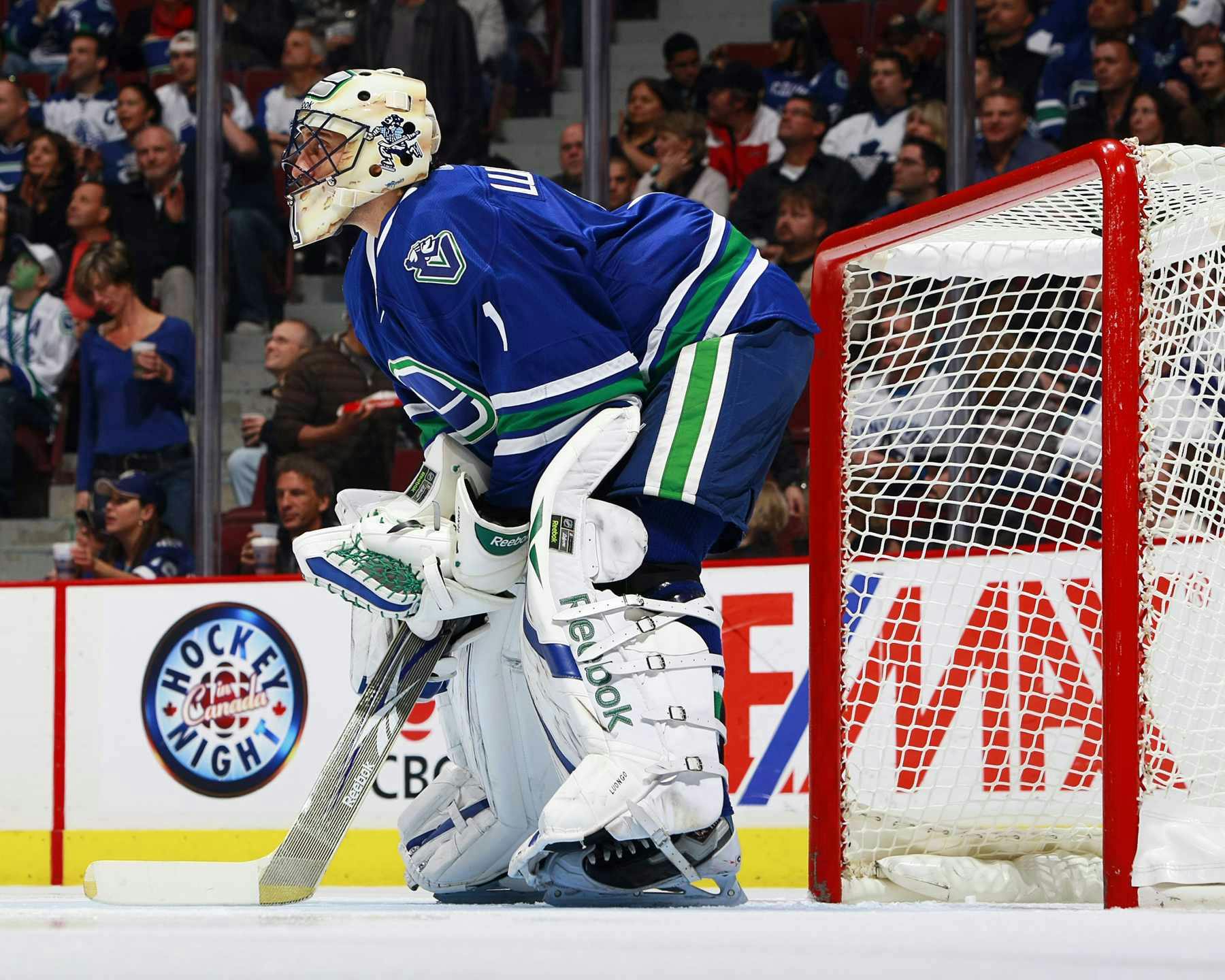
I like to imagine that Luongo is looking at me scornfully, and thinking…
"Really man, you’re going to write another speculative post about my trade status?"
Last week, while writing about the NHL’s proposed penalty on teams who signed star players to cap-circumventing "back-diving contracts", I wrote that the so called "Kovy Klause" would "hardly impact the arithmetic of a potential Luongo trade" for the Canucks.
Maybe I didn’t go far enough in that analysis because in the return of Elliotte Friedman’s Thirty Thoughts column on Monday, the Hockey Night in Canada reporter took this logic one step further. Is it possible that, in fact, Mike Gillis and the Canucks could benefit from the insertion of the punitive clause in the next NHL collective bargaining agreement (CBA)?
Read on past the jump.
Mr. Friedman broaches the Luongo subject in thought number 14 of this week’s column, hiding the interesting nugget about the back-diving contracts rule at the tail end of a tidbit on Vancouver’s desire to "do right" by Luongo:
Roberto Luongo: Really believe the Canucks want to do right by him. He showed up at their golf tournament after all of the trade stuff got out and they appreciated it. To me, the biggest question is: does the new CBA include that rule where the cap hit reverts to the Canucks if he retires? Because, if it does happen, does Luongo’s value go up?
Mr. Friedman continues in this vein for several thoughts thereafter:
Think about it: there’s extra risk for Vancouver in making that deal and extra reward for whoever gets him, especially if you are cash-rich (cough, Toronto, cough). Don’t know if it would help Florida (Luongo’s preferred destination) since his new team will owe Luongo $44 million over the next seven years, depending on any rollback. But, would another cash-rich team considering goalie help (say, Chicago) re-visit the situation?I do believe the Maple Leafs and Canucks are far down the road in these conversations. But nothing is done until it’s done. And, if the Blackhawks (or someone else) like the look of that new rule, it creates a market for Mike Gillis to ask for more for Luongo. Would certainly be ironic if the legislation Brian Burke wanted costs him a player he’s interested in.One of the reasons Vancouver and Florida had trouble making a deal is the Panthers don’t want to include Nick Bjugstad or Quinton Howden. Who is the prospect the Canucks would want from Toronto? (And don’t say Jake Gardiner. It’s not going to be him.)
Now we already thought we knew that Florida’s complete refusal to trade Nick Bjugstad was the major stumbling block on that front, and most observers have come around to the idea that the Canucks and Leafs have been in constant communication about Luongo since the NHL draft. But the most interesting bit of new analysis from our perspective, by far, is the notion that the "Kovy Klause" could give Mike Gillis some additional leverage.
The following isn’t to say that I find Friedman’s logic here unconvincing (quite the opposite), but it’s worth pointing out something that one might reasonably find a little bit odd in his analysis. After all, Luongo’s contract is structured in a way that makes the date of his retirement rather predictable – so why would the "Kovy Klause" increase a team like Chicago’s willingness to take on Luongo’s deal?
Under the terms of Luongo’s current contract – per Capgeek – the gold medal winning puck stopper is due to make nearly seven million in salary in each of the next six seasons (through 2017-18). In 2018-19, his salary drops to 3.38 million, and in 2019-20 it drops to 1.62 million. In the final two seasons of the contract, the deal pays him out only one million dollars in each of those seasons. Presumably then, Luongo would be very likely to retire following the 2018-19 season, since he doesn’t stand to make all that much in hard cash over the final three years of the deal.
We can safely infer from Mr. Friedman’s analysis then, that despite the virtual certainty that Luongo will not fulfill the term of his current life-time contract, the last few seasons of his deal are nonetheless seen as a "drag" on his trade value.
While the "Kovy Klause" does nothing to alter the structure of Luongo’s deal, or the chances that he plays through the end of the 2022 NHL season; Friedman is suggesting here that teams might be willing to pay a slightly higher price, if Luongo’s services come with that notional bit of added cost-certainty.
If Friedman is right, and I don’t doubt that he is, this is gravy for Mike Gillis and the Canucks. For an aging "win now" team, anything that helps them maximize the return for Luongo is a big win..
Read all of Elliotte Friedman’s Thirty Thoughts column here.
Recent articles from Thomas Drance

